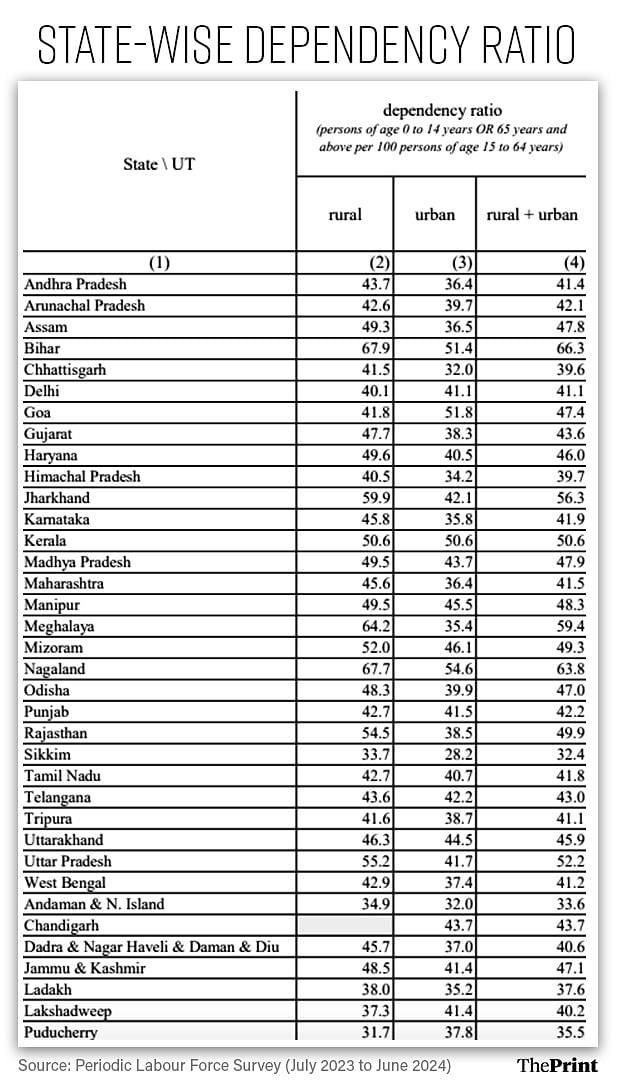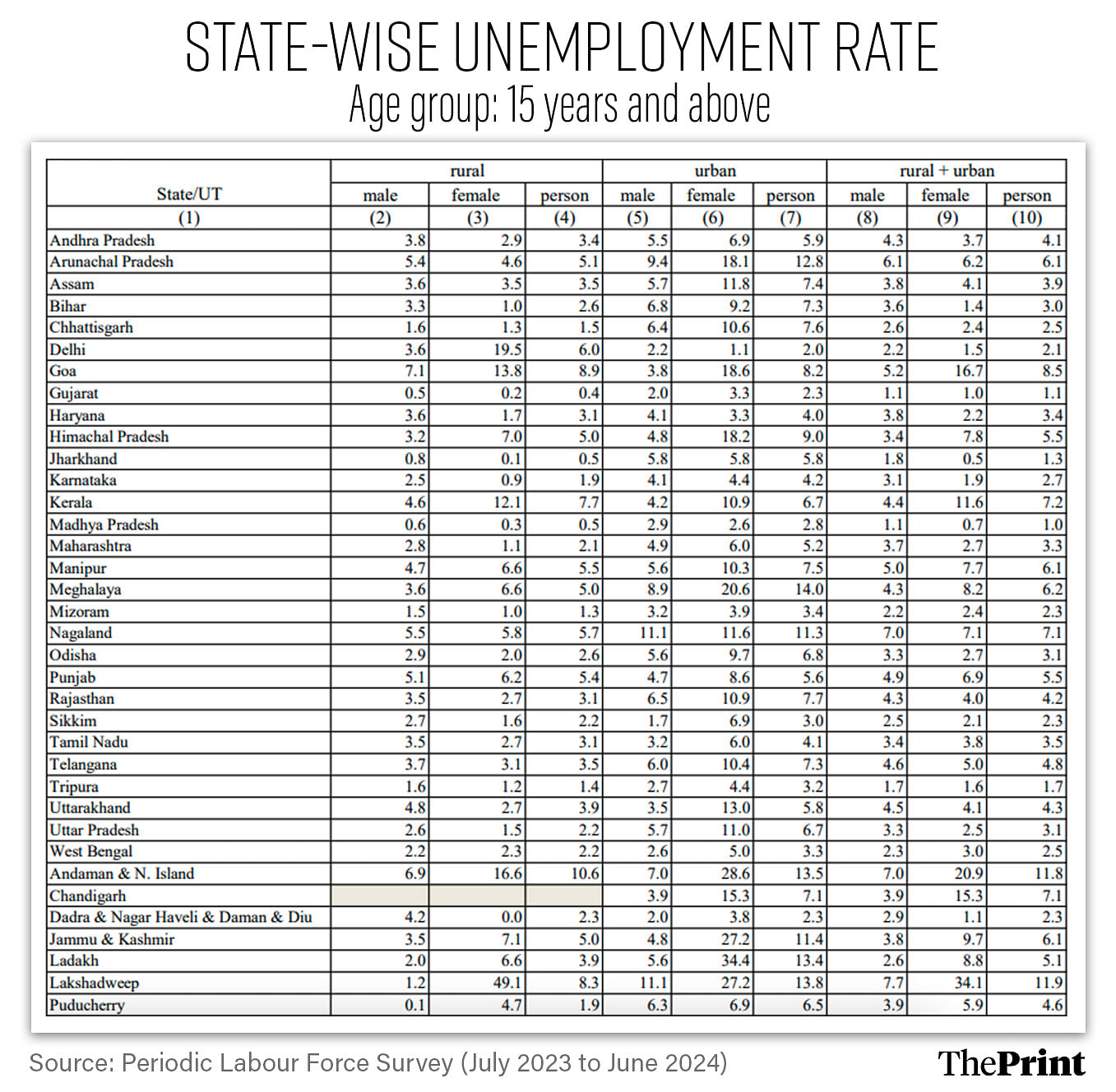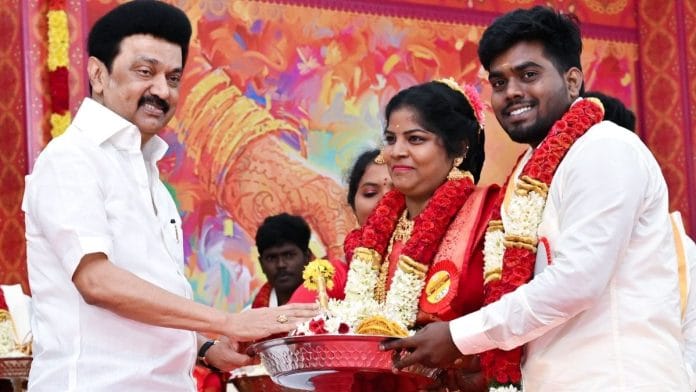If you grew up in Madras, as I did, or elsewhere in southern India, you probably cringe every time the news media based in Delhi covers anything related to the South. Last week was a distillation of that phenomenon.
Tamil Nadu Chief Minister MK Stalin presided over a mass wedding ceremony. That, in itself, is a worthy story. The DMK, over its long history, has used weddings—most of them conducted as ‘suyamariyathai thirumanam’ or self-respect marriages, which do not need a priest or religious ceremony—as a tool of political and social awakening. In this era of state governments enacting actual laws against made-up concepts like ‘love jihad’ that deepen caste and religious endogamy, a story on self respect marriages – even if this instance wasn’t one – would have been illuminating. Except, people in the rest of India got none of that. Instead, they were told, by almost every news outlet, wrongly, that the Chief Minister of Tamil Nadu had asked newly married couples to have 16 children or something to that effect.
The Chief Minister said nothing of that sort. He repeated a Tamil blessing: may you have all 16 forms of wealth and live prosperously. And he explicitly said this blessing means 16 forms of wealth and not children, as it’s commonly misunderstood given that the wealth part is implicit in the Tamil saying. Then he lamented, ironically, that we are left wondering if we should take that to actually mean children given the upcoming delimitation exercise that punishes Tamil Nadu for doing an excellent job in controlling its population. This is normal speech at a quasi-political event. It needs no coverage; what needs coverage, if at all, is the unfairness of the delimitation exercise. Or, the history of how the Dravidian movement sought to end caste endogamy by delinking marriages from religious sanction.
N Chandrababu Naidu, Chief Minister of neighbouring Andhra Pradesh, did say he wanted couples in his state to have more children. He has been saying this for some years now and seems to believe economic growth driven by population growth is necessary and desirable. This, it’d seem, is the actual exhortation that the Delhi-based news media is responding to. And it used the MK Stalin quote, taken out of context, as a convenient data point to make the claim seem stronger than it was.
First, are southern states running out of people to such a degree that there aren’t enough to keep the economy afloat? The dependency ratio—which is the ratio of children and the elderly, who are considered dependent, to the working-age population—does seem relatively stable across all states in India. In states like Andhra Pradesh, Karnataka and Tamil Nadu, there are fewer children being born, to be sure, but the bulge in the middle, of people belonging to working age, spans a generation and a half, which will ensure this ratio is relatively stable going forward as well. And while we maintain that stability, improving the quality of life of those over 65 may even make them more productive and less dependent over time. Hopefully, this would further expand the middle bulge.

Not enough jobs
A second more important question is: are there more jobs than people, suggesting the economy has run out of people in these southern states? Or, at the least, is the unemployment rate in these states significantly lower than the national average? The answer is the opposite. Southern states, since they have a more literate population that depends less on agriculture, have an unemployment rate that’s higher than the national average. That is, there are more people looking for jobs and aren’t getting one in southern India than the country as a whole.

This suggests we don’t have a problem of too few people. Not even in southern India. We do have a problem of too few jobs! Having more people and fewer jobs is not going to solve the dependency ratio problem even if it were to blow up.
The question that gets thrown around is: Why are so many people from northern India working in the factories, farms, and construction sites of southern India? Doesn’t that point to a declining population and a lack of native people to do those jobs? The answer, often, is less satisfying. The reason employers in construction sites and factories employ contract labour from the impoverished parts of central and northern India is not that they can’t find locals. It’s that they don’t want to pay the wages of a slightly more prosperous society that their plants and projects are located in. They want cheap labour from elsewhere. This is a problem of capital choosing profits over fair wages, not of a society that’s shrinking.
When the fertility rate of a society stabilises at or slightly below replacement level in a highly populated society, there are several benefits: there are finally enough schools, there are finally enough doctors and hospitals, there are finally enough jobs at fair wages and so on. On the social side, in health and education, southern India is starting to reap the benefits of a stabilising population. On the jobs front, while there are still fewer jobs than there is demand for them, even those jobs are being filled with people from elsewhere who are willing to work at lower wages. This is a political problem that needs thoughtful consideration. Otherwise, it’s likely to descend into anti-immigrant rhetoric which can’t be controlled; some parts of Tamil and Kannadiga polity are already there.
Southern India, therefore, does not need more people for its own economic sustenance. What it does need is a just representation of its own people’s will in the way in which it is governed. The delimitation exercise threatens that. As do the overt and covert centralisation of policy measures by the Union Government. The answer to that is a political solution that involves extreme decentralisation in policy making; having more children by converting women into childbearing machines is not an answer. In a world threatened with annihilation by climate change, increasing fertility and producing even more humans who will emit ever more Carbon Dioxide, is only a recipe for literal disaster.
Nilakantan RS is a data scientist and the author of ‘South vs North: India’s Great Divide’. He tweets @puram_politics. Views are personal.
(Edited by Theres Sudeep)







Very sensible article. Although Stalin did not mention the number, the point is Stalin did ask couples to have more children. Hopefully people are too smart to fall for this as governments across India and at the Centre have failed in providing even the basic necessities for a decent life and having more children just makes it worse. If India wants to grow it’s economy the way is to increase productivity not children.
Excellent analysis!